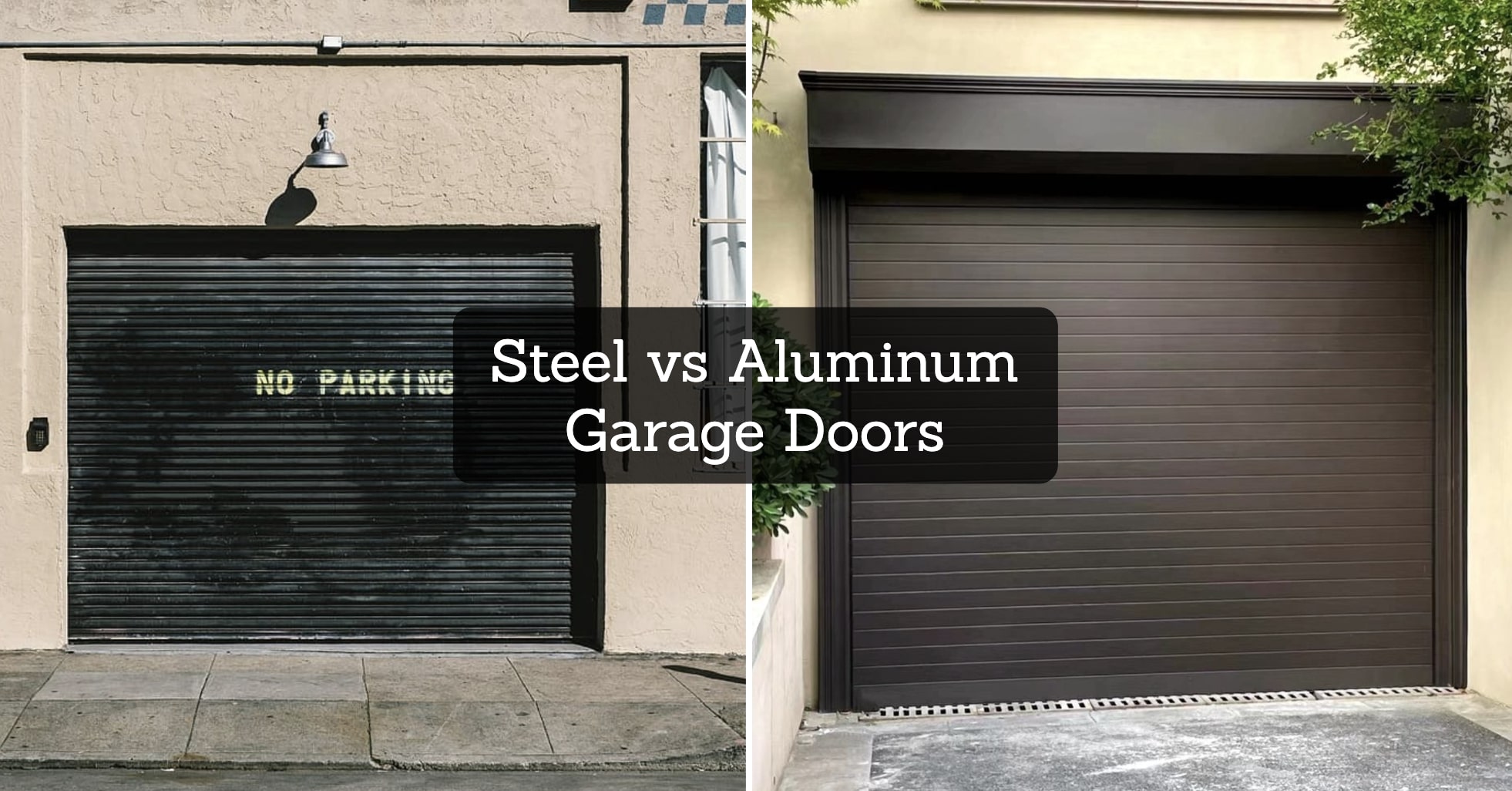When it comes to protecting your prized possessions and adding curb appeal to your home, choosing the right garage door material is a crucial decision. Two popular contenders in this arena are steel and aluminum, each boasting its own set of strengths and weaknesses. Let’s delve into the pros and cons of these metallic titans to help you crown the champion for your garage.
To maximize energy efficiency in your new steel or aluminum garage door, check out this article on the best garage door insulation kits.
The Mighty Steel
Pros:
- Strength and Security: Unmatched by aluminum, steel doors offer superior resistance to dents, dings, and even break-in attempts. They provide peace of mind, especially in areas prone to crime or extreme weather.
- Durability: Like a knight’s armor, steel doors withstand the test of time, lasting for decades with proper care. Their resilience against harsh weather conditions is commendable.
- Affordability: Generally less expensive than aluminum, steel doors offer a budget-friendly option for homeowners seeking value.
- Versatility: Available in a wide range of styles and thicknesses, steel doors can seamlessly blend with any architectural style, from modern to traditional.
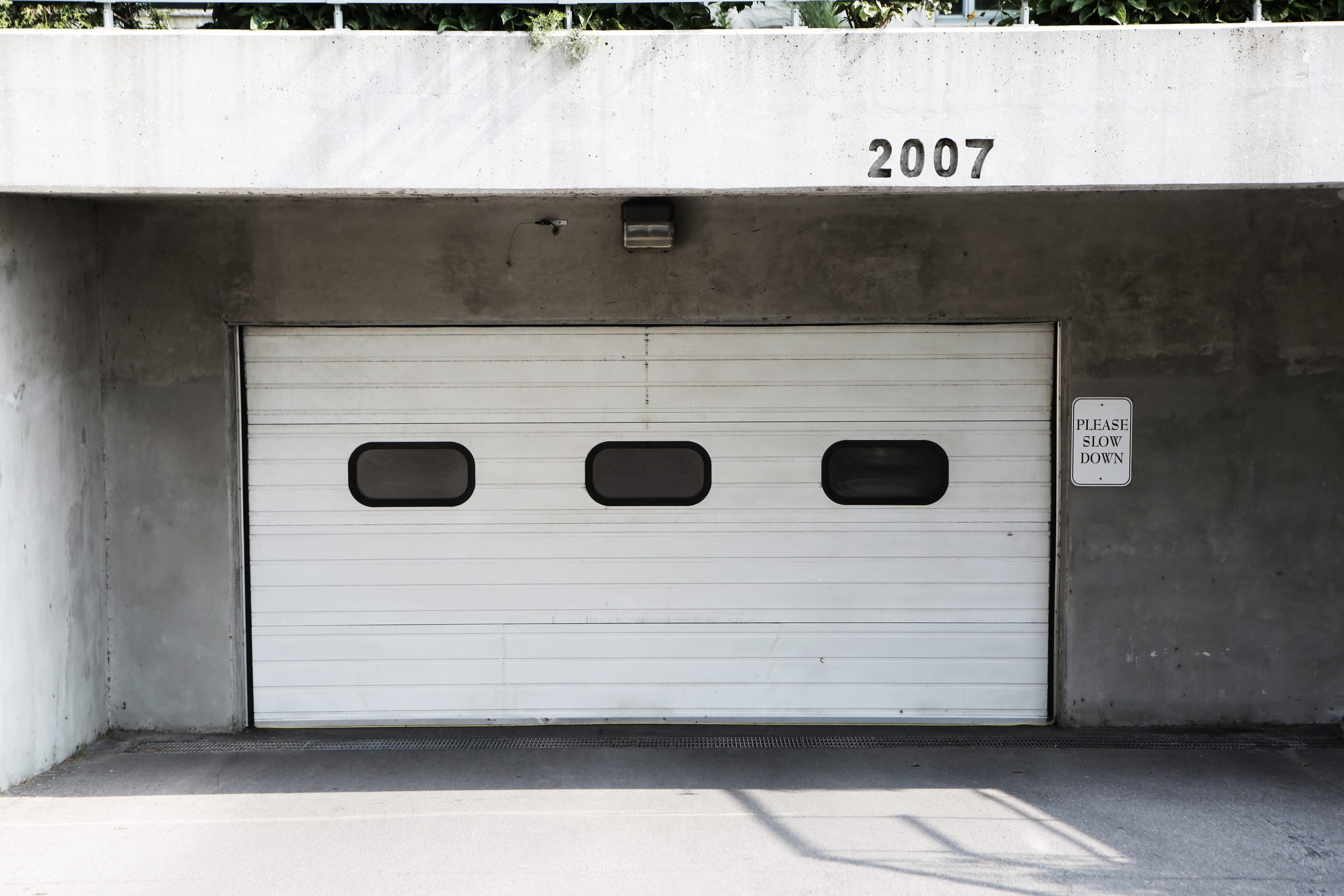
Cons:
- Weight: The very quality of steel becomes its burden. Heavy doors require sturdier openers and can be challenging to operate manually, especially for children or the elderly.
- Rust: Prone to rust if not properly treated, steel doors demand regular maintenance and touch-ups to retain their pristine look.
- Insulation: Steel conducts heat and cold efficiently, leading to higher energy bills if your garage is attached to your home. Consider insulated steel options for better energy efficiency.
You may also like: 7 Best Garage Door Cables Compared
The Lightweight Aluminum Contender
Pros:
- Lightness: A featherweight compared to steel, aluminum doors are easier to operate manually and put less strain on garage door openers, extending their lifespan.
- Corrosion Resistance: Naturally resistant to rust and corrosion, aluminum doors require minimal maintenance, saving you time and money.
- Insulation: Inherent insulating properties help regulate garage temperature, potentially reducing energy costs if your garage is attached to your home.
- Modern Aesthetics: Sleek and modern, aluminum doors come in various finishes and styles, adding a touch of contemporary flair to your home.

Cons:
- Strength: While dent-resistant, aluminum doors aren’t as robust as steel and may succumb to forceful impacts or break-in attempts.
- Cost: Generally more expensive than steel, aluminum doors might not be the most budget-friendly option.
- Limited Styles: Compared to steel’s diverse styles, aluminum options might be more limited, especially for those seeking traditional aesthetics.
Choosing between steel and aluminum ultimately depends on your individual needs and priorities. If strength and affordability are paramount, steel reigns supreme. However, if ease of operation, low maintenance, and modern aesthetics are your goals, aluminum takes the lead.
Durability Showdown
In the battle for garage door supremacy, durability stands as a crucial metric. Both steel and aluminum boast their own strengths in this arena, but which metal emerges victorious? Let’s delve deeper into the wear and tear resistance of these metallic contenders.
The Steel Shield:
- Unmatched Resilience: Steel’s inherent strength translates to exceptional durability. It can withstand harsh weather, accidental bumps, and even attempted break-ins with minimal damage.
- Heavyweight Protection: The very weight that poses installation challenges becomes a boon in terms of longevity. Thicker steel doors offer superior resistance to dents and warping, ensuring a long lifespan.
- Maintenance Matters: Though resistant to rust with proper treatment, steel’s susceptibility to corrosion requires regular maintenance. Skipping touch-ups can compromise its durability.
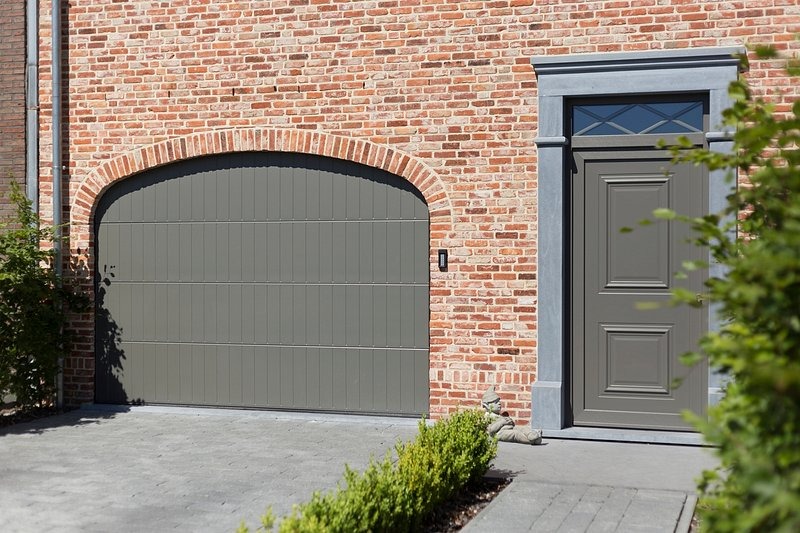
The Aluminum Armor:
- Rustproof Champion: Aluminum’s natural resistance to rust and corrosion eliminates the need for regular maintenance, minimizing long-term wear and tear. No more worries about rust creeping in and weakening the door.
- Lightweight Longevity: Despite its lighter weight, aluminum can offer impressive durability if built with thicker gauges and reinforced panels. However, thinner gauge doors are more susceptible to dents and require careful handling.
- Limited Impact Resistance: While aluminum resists rust, its lighter nature makes it less resistant to forceful impacts compared to steel. Dents and warping are more likely, especially with thinner gauge doors.
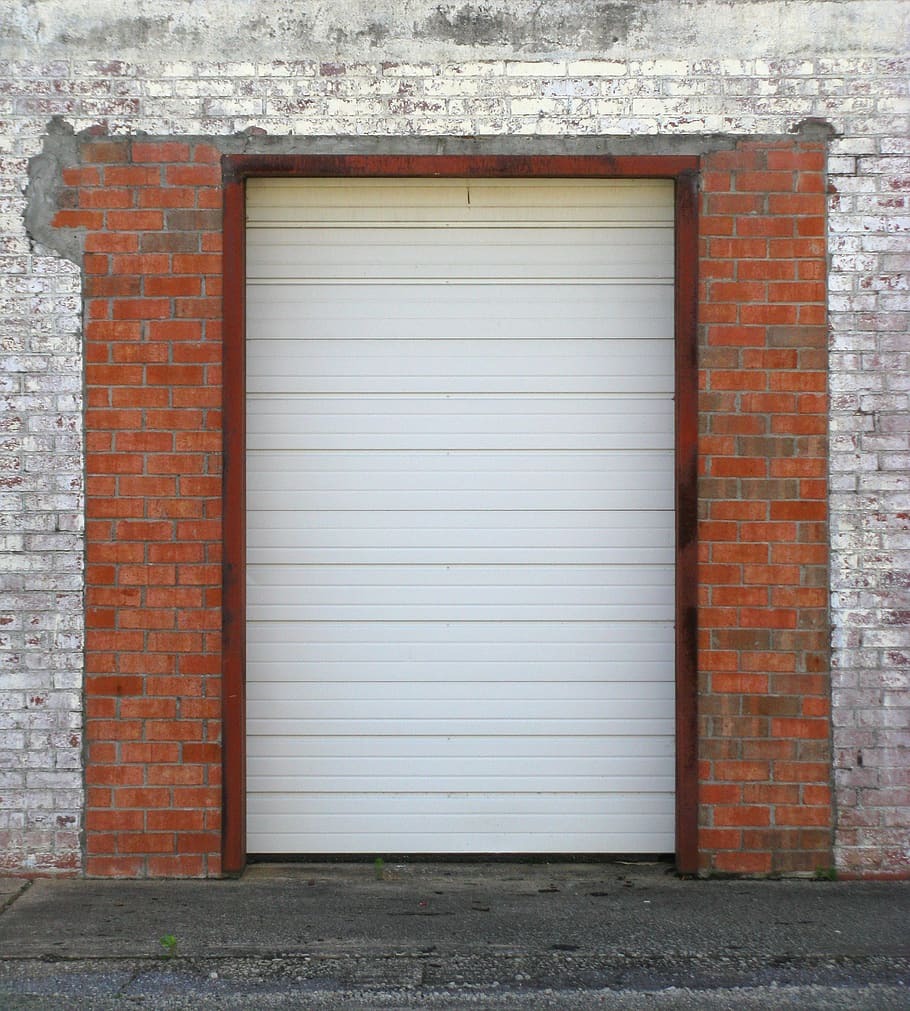
Steel takes the crown when it comes to sheer strength and resistance to major impacts. Its heavier weight and thicker gauges provide an undeniable advantage in harsh environments or areas prone to vandalism. However, aluminum shines in low-maintenance situations and offers surprising durability with thicker gauges, especially when rust is a concern.
You may also like: Universal Garage Door Bottom Seal Reviews (Top 7 Goods)
Insulation Showdown
In the ongoing battle for garage door supremacy, insulation emerges as a crucial factor for homeowners concerned about energy efficiency and temperature control. While both steel and aluminum offer options, let’s see which metal emerges as the champion of keeping your garage comfortable and your energy bills low.
The Steel Fortress:
- Naturally Conductive: Steel readily conducts heat and cold, making uninsulated steel doors energy guzzlers, especially if your garage is attached to your home. Heat escapes in winter, and summer heat intrudes, leading to higher energy costs.
- Insulated Options: Fortunately, steel doors come with various insulation options, including polystyrene, foam, and injected polyurethane. These significantly improve energy efficiency, making steel doors a viable contender in colder or hotter climates.
- Thickness Matters: The thicker the steel door and its insulation layer, the better the R-value (a measure of insulation effectiveness). Choose thicker options for superior energy savings.

The Aluminum Armoury:
- Moderately Insulating: Aluminum naturally offers slightly better insulation than steel due to its lower thermal conductivity. However, it still conducts heat and cold, impacting energy efficiency, especially in extreme climates.
- Insulation Boost: Similar to steel, aluminum doors offer various insulation options, including foam and injected polyurethane. These significantly improve energy efficiency, making aluminum doors competitive in moderate climates.
- Focus on Panels: Pay close attention to the insulation of the door panels, not just the frame. Thicker, well-insulated panels offer the most significant energy savings.

Consider your climate, garage usage (heated/unheated), and energy efficiency goals before choosing. For maximum insulation, thicker, well-insulated steel doors reign supreme in extreme climates. But for moderate climates and budget-conscious homeowners, insulated aluminum doors offer a viable alternative.
The Weight of the Matter
In the ongoing clash for garage door supremacy, weight plays a crucial role, impacting everything from installation to operation and longevity. Let’s weigh the advantages and disadvantages of each metal contender in this battle of the pounds.
The Mighty Steel:
- Heavyweight Champion: Steel’s inherent strength comes at the cost of significant weight. A standard single-car steel door can weigh 200-300 pounds, while double doors can exceed 400 pounds.
- Installation Challenges: Due to their weight, steel doors require sturdier garage door openers and reinforced tracks, sometimes involving professional installation. DIY installation might not be feasible.
- Stress on Opener: The heavier the door, the more strain it puts on the opener, leading to faster wear and tear and potentially higher repair costs.
- Limited Manual Operation: Especially for thicker gauge doors, manual operation can be difficult.
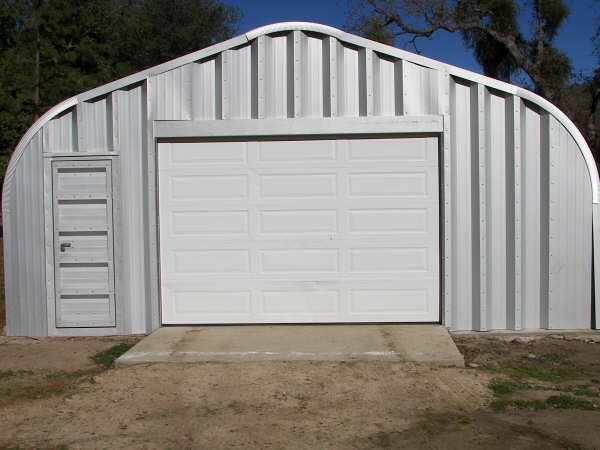
The Lightweight Aluminum:
- Featherweight Contender: Aluminum doors weigh significantly less than steel, with single-car doors averaging 100-150 pounds and double doors around 200 pounds. This makes them easier to install and operate manually.
- DIY-Friendly Installation: The lighter weight allows for easier DIY installation, potentially saving on installation costs.
- Less Stress on Opener: Lighter doors put less strain on the opener, extending its lifespan and reducing potential repair costs.
- Easy Manual Operation: Aluminum doors are much easier to open and close manually, making them ideal for those with limited physical strength.
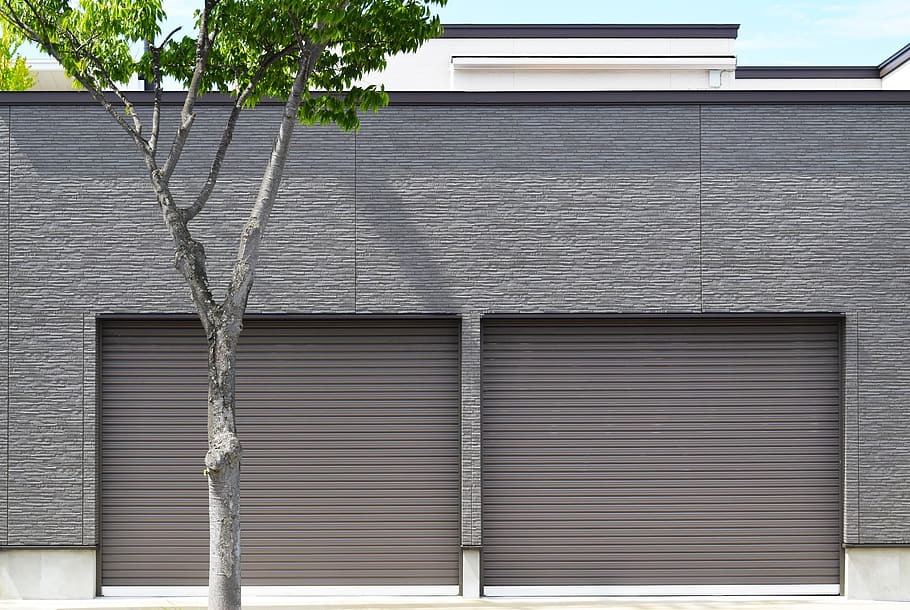
The weight champion depends on your priorities. If professional installation and durability are paramount, steel’s weight might not be a significant concern. However, if easy installation, DIY potential, and lower strain on the opener are crucial, aluminum’s lightness shines.
You may also like: 7 Best Garage Door Keypads
The Price of Protection
In the next round of our garage door duel, we tackle the age-old question: how much will it cost to shield your home? Let’s dissect the price tags of steel and aluminum contenders, revealing the financial impact of each champion.
The Steel Shield:
- Budget-Friendly Warrior: Generally, steel doors offer the most affordable option, with single-car doors starting around $400 and double doors exceeding $800. However, remember, thicker gauges and insulation add to the cost.
- Installation Factor: Due to their weight, professional installation might be necessary, adding $200-$500 to the bill. DIY installation can save money but requires skill and caution.
- Maintenance Costs: Regular touch-ups to prevent rust can add to long-term costs, although newer pre-painted options require less maintenance.
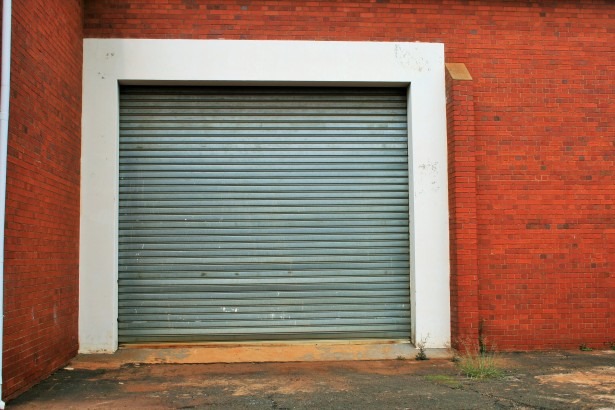
The Aluminum Armour:
- Modern Price Tag: Aluminum doors typically carry a higher initial cost than steel, with single-car doors starting around $600 and double doors exceeding $1,000. High-end, fully-view aluminum doors can cost significantly more.
- DIY Potential: Their lighter weight makes DIY installation more feasible, potentially saving on installation costs.
- Lower Maintenance: Naturally rust-resistant, aluminum doors require minimal maintenance, reducing long-term costs.
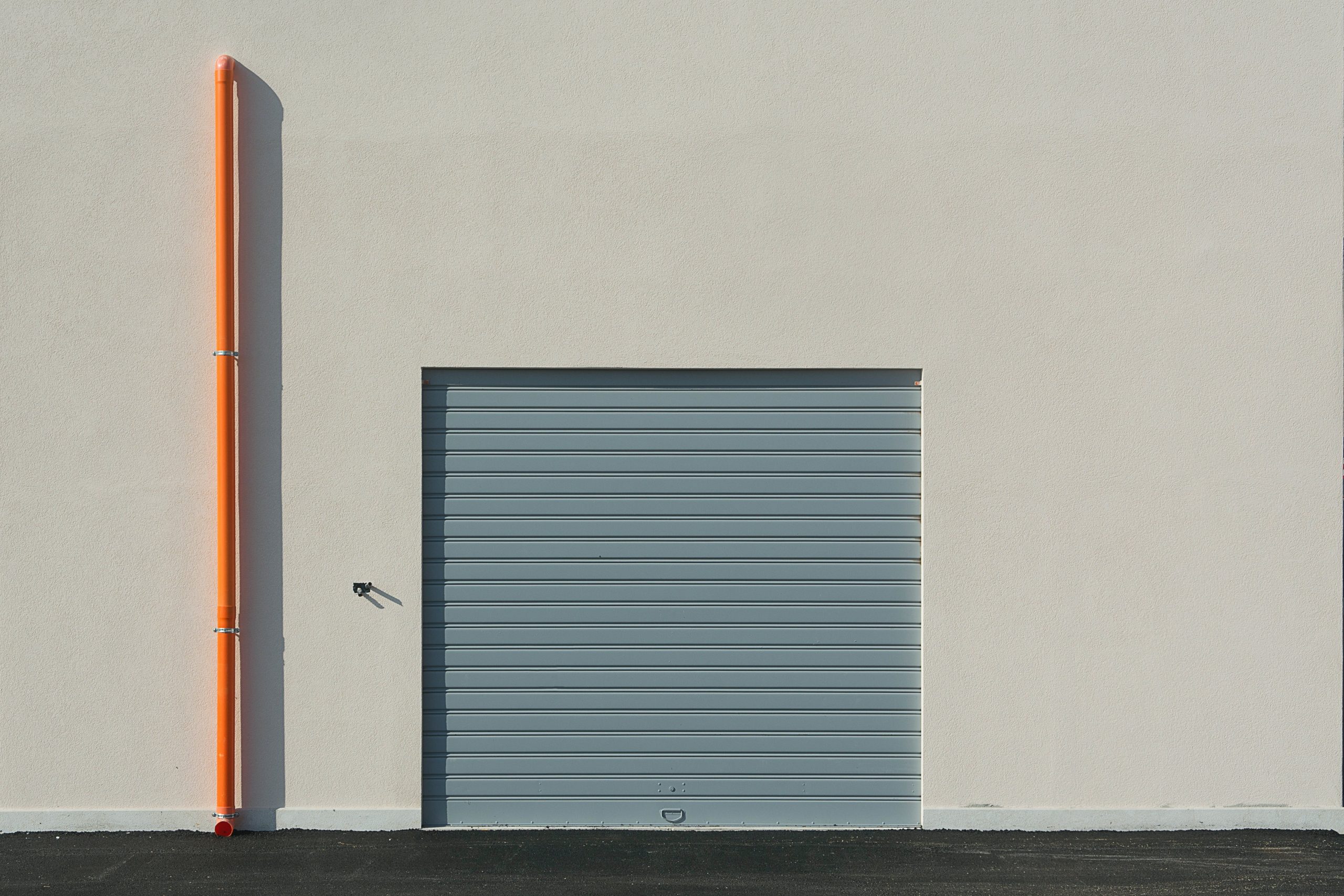
While steel presents the most budget-friendly entry point, consider the total cost of ownership. If professional installation and potential rust maintenance are factored in, the price gap between steel and aluminum might narrow. For DIY enthusiasts willing to tackle installation, aluminum’s lower maintenance costs can be appealing.
The Beauty Within the Brawn
In the final chapter of our garage door saga, we delve into the realm of aesthetics, where style meets function. Let’s see how steel and aluminum contenders showcase their beauty, ensuring your garage door complements, not clashes, with your home’s curb appeal.
The Steel Sculptor:
- Timeless Tradition: Steel doors offer a classic, rugged aesthetic, often mimicking the look of traditional carriage house doors with raised panels. This timeless style seamlessly blends with historical and colonial-style homes.
- Limited Palette: While available in various colors, steel’s natural finish leans towards dark shades, offering a more industrial or modern feel. Customization options might be limited compared to aluminum.
- Textured Options: Embossed and textured finishes can add visual interest to steel doors, mimicking wood grain or other materials.
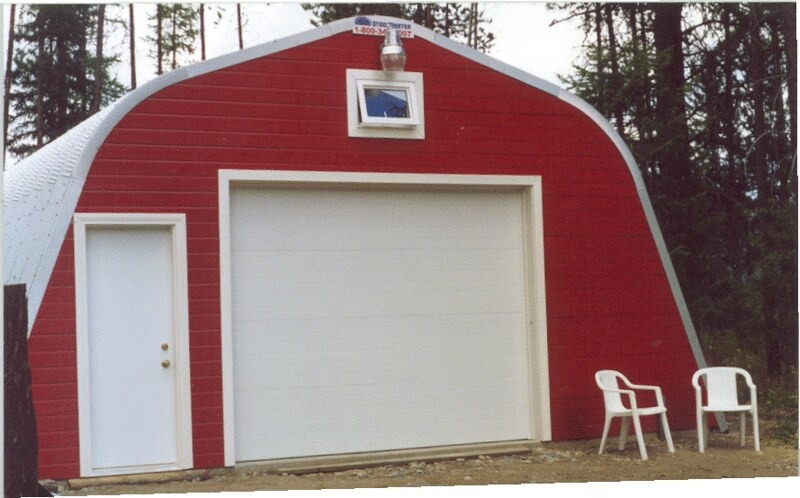
The Aluminum Artisan:
- Modern Muse: Aluminum doors shine with a sleek, contemporary aesthetic. Their smooth surfaces and clean lines perfectly complement modern, minimalist, and mid-century modern architecture.
- Color Chameleon: Aluminum readily accepts a wider range of vibrant colors and finishes, including woodgrain or faux-stone looks, allowing for greater customization and personalization.
- Glassy Glamour: Aluminum doors excel in incorporating glass panels, offering a light and airy feel and showcasing the interior of your garage, perfect for car enthusiasts or home studios.
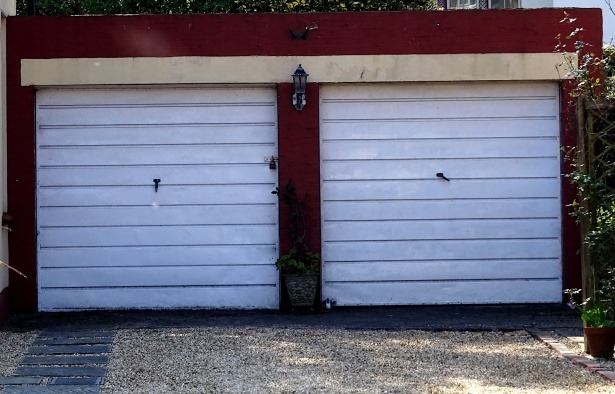
The champion of aesthetics depends entirely on your personal style and the architectural theme of your house. If you crave a classic, rugged look, steel’s traditional charm might win you over. But if modernity and customization are your priorities, aluminum’s adaptability reigns supreme.
You may also like: 7 Best Garage Door Openers with Camera
With this comprehensive comparison of steel and aluminum garage doors, you now possess the knowledge to make an informed decision. Remember, the true champion is the door that not only protects your home and belongings but also reflects your style and complements your architectural aesthetic. Choose wisely, and may your garage door stand as a proud guardian, both beautiful and strong, for years to come!

